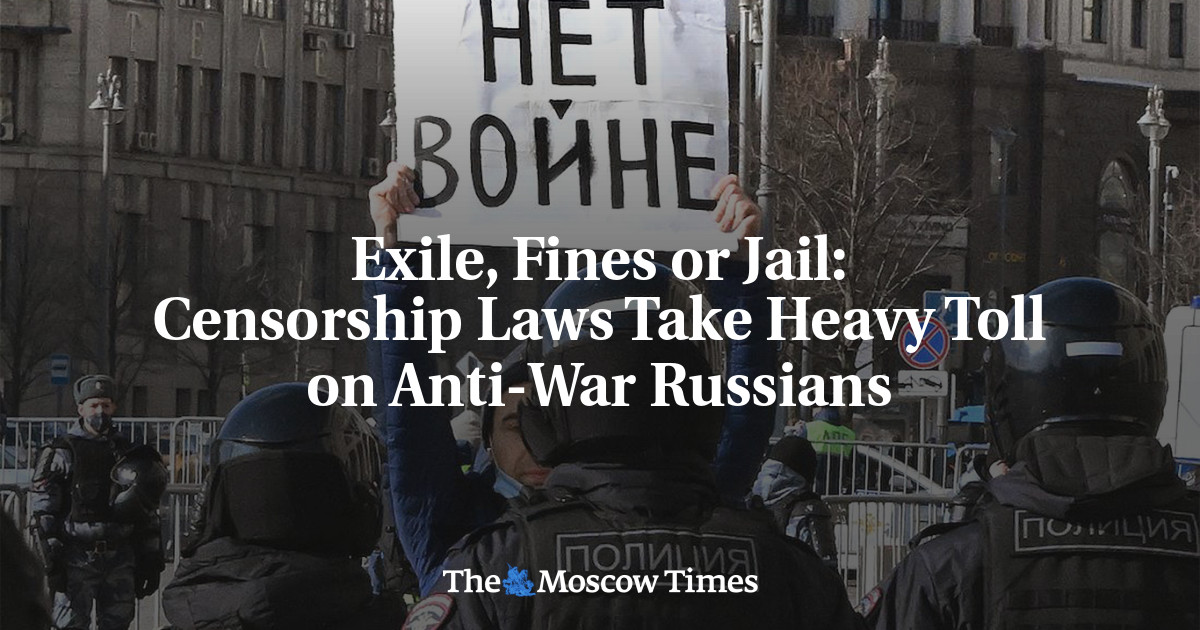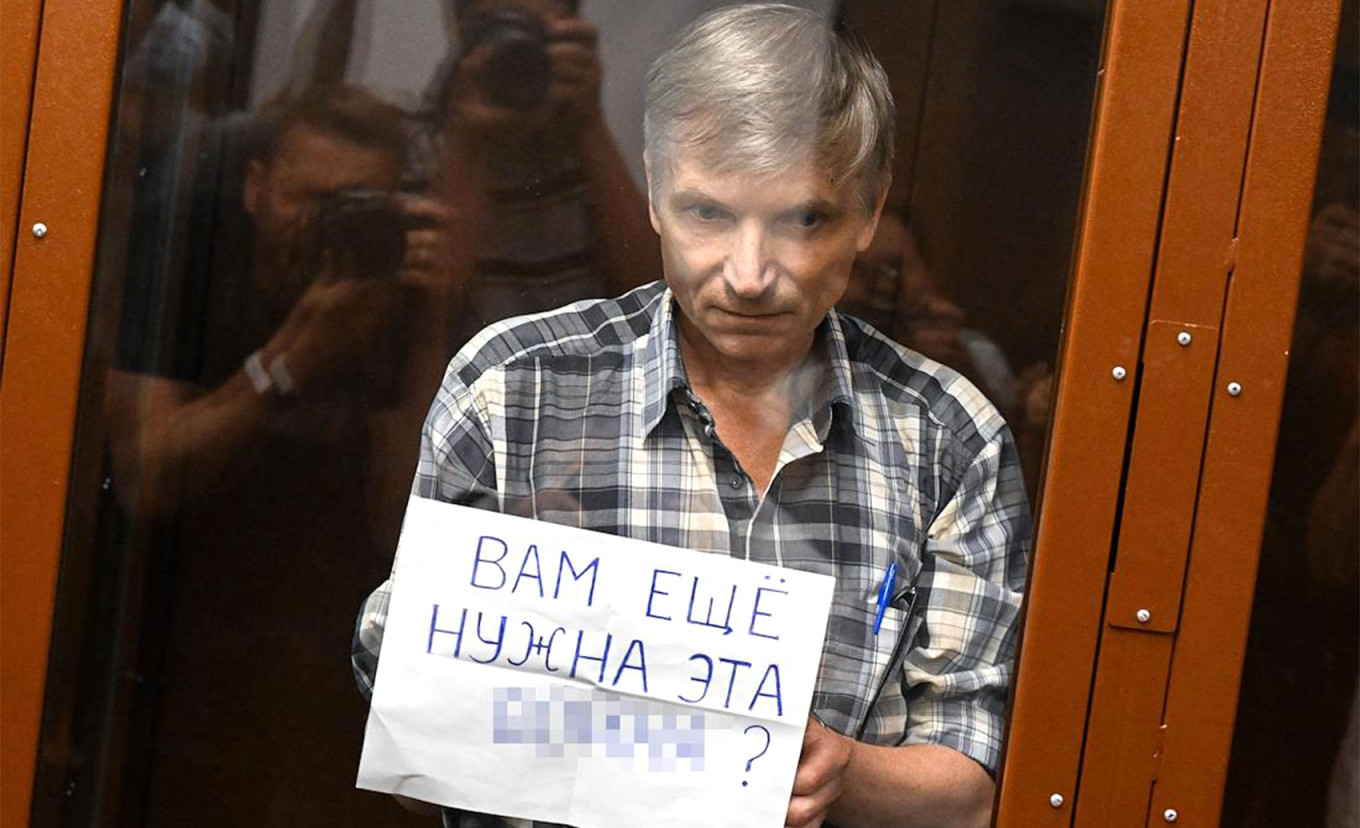



Russia’s Justice Ministry apparently has compiled a special guide stating that “a negative opinion” is viewed as “discrediting,” while “a statement of fact” is considered to be “spreading false information,” the Kommersant newspaper reported earlier this month. Either way, the laws appear to have been designed to be vague enough that almost anyone can be targeted. “We can definitely say that the laws are military censorship,” said Alexandra Baeva, the head of the legal department at OVD-Info. “Spreading any information that contradicts Russian official statements [about the situation in Ukraine] is punishable.” The first person to be sentenced to a long jail term under the wartime censorship laws was Moscow municipal deputy Alexei Gorinov, who was given seven years in prison last month. Gorinov’s crime was to question whether it was appropriate to hold an art competition for kids in his constituency while — as he put it — "children are dying" in Ukraine. He denied his guilt and held up a placard in court that read: “Do you still need this war?” Opposition leaders Ilya Yashin, 39, and Vladimir Kara-Murza, 40, who were arrested for allegedly "spreading false information" about the Russian army, are currently in jail awaiting trial. The former mayor of Yekaterinburg and another prominent Kremlin critic, Yevgeny Roizman, was detained Wednesday on criminal charges for repeatedly "discrediting” the Russian Armed Forces.

Along with politicians, journalists are also one of the largest groups to have been targeted, with at least 14 criminal cases for “spreading fakes” about the Russian Armed Forces opened against reporters, according to lawyer Stanislav Seleznyov, a senior partner at the Net Freedoms Project. Russia’s Interior Ministry placed investigative journalist Andrei Soldatov on the federal wanted list after he was accused of “spreading false information” in March. Journalists Alexander Nevzorov and Michael Nacke and Conflict Intelligence Team founder Ruslan Leviyev have all been accused under the same law. In total, over 200 people are currently facing criminal prosecutions for voicing opposition to the war in Ukraine, according to the tally kept by OVD-Info. These criminal and administrative prosecutions have gone a long way toward silencing criticism of Russia's actions in Ukraine, according to Seleznyov. “Every news report about yet another criminal case or fine for discrediting the army and spreading false information cools public discussion,” he said. Yet despite the unprecedented crackdown, Russians continue to oppose the war. “It was unbearable for me to understand that people [in Ukraine] were being killed and maimed and I couldn’t do anything,” Belyaeva said from Latvia.
“At least I could speak out.”
#Exile #Fines #Jail #Censorship #Laws #Heavy #Toll #AntiWar #Russians
https://www.globalcourant.com/exile-fines-or-jail-censorship-laws-take-heavy-toll-on-anti-war-russians/?feed_id=15755&_unique_id=6307b9b171b2a



